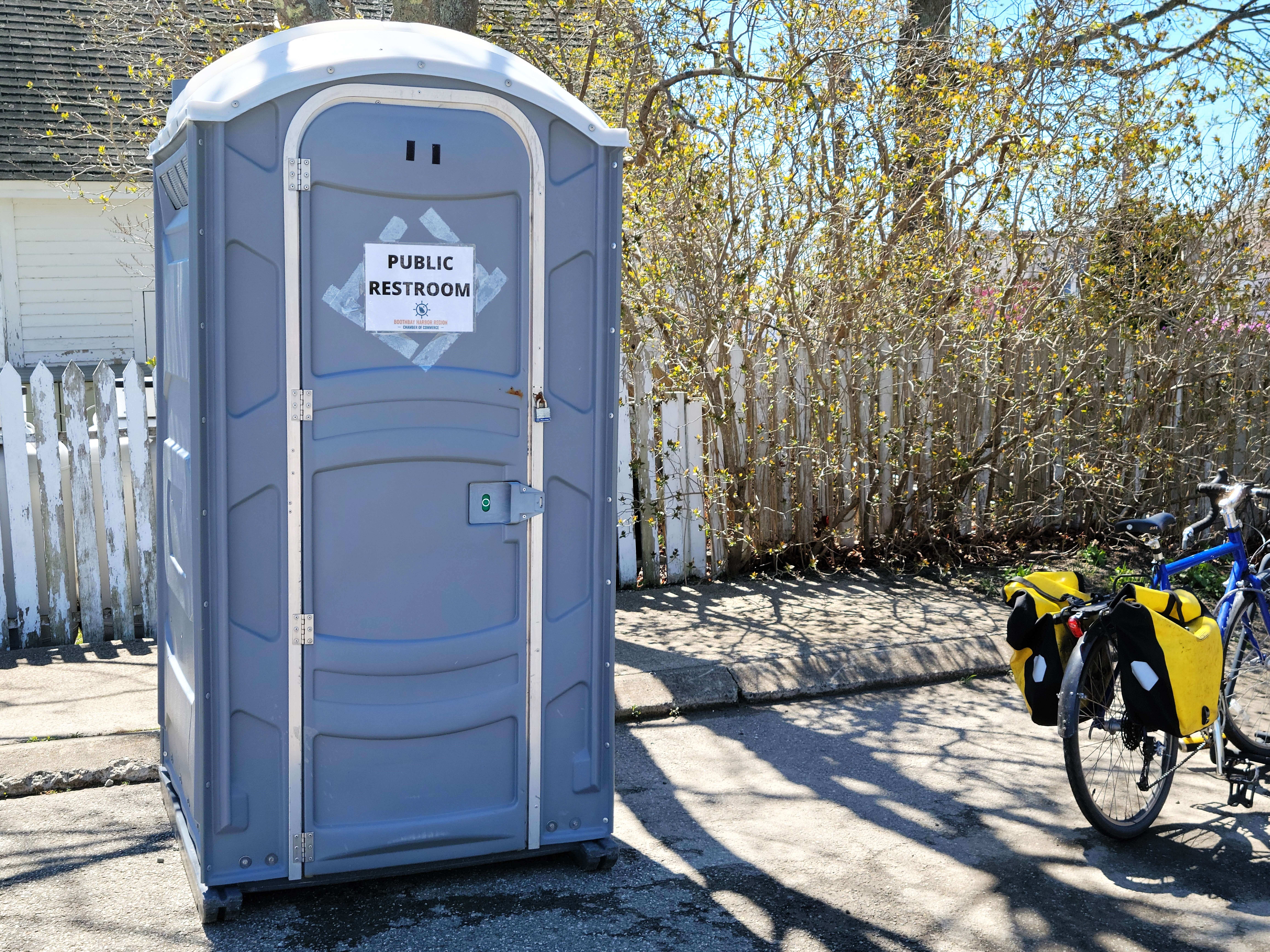
Lewiston may soon be looking for a 'loo,' and other cities are too
 Courtesy / Portland Loos
The patented "Portland Loo" was developed in that other city with the familiar name, but has been installed in nearly 100 locations worldwide.
Courtesy / Portland Loos
The patented "Portland Loo" was developed in that other city with the familiar name, but has been installed in nearly 100 locations worldwide.
Hoping that more people will visit downtown Lewiston, the city may soon make it easier for them to “go.”
The City Council on Tuesday is scheduled to workshop a proposal to install public restrooms in Lewiston, an idea that has been floated previously but is now gaining momentum there and in other Maine communities.
In Lewiston, there’s a budget recommendation of $131,000 for the pilot project, Deputy City Administrator Dale F. Doughty told Mainebiz on Monday. If the project is approved, a new restroom could be installed in Kennedy Memorial Park or other locations by fall.
The goal is both to address public health needs and to “be a more welcoming community,” Doughty said.
“As Lewiston continues to grow, as we attract visitors and help our business and economic climate, those comfort facilities are really needed.”
Basic sanitation is a more immediate concern, however. It’s been a problem for several years, according to Doughty, but has grown worse since the onset of COVID-19.
Current facilities downtown are limited. Bathrooms in City Hall and the city’s main library are generally open to the public, Doughty said, but aren’t designed for heavy use and have been sometimes closed during the pandemic.
Restaurants and other businesses may offer their facilities to patrons. People experiencing homelessness may find relief if they're staying at a local shelter. Otherwise, there aren’t many options.
“COVID restrictions and temporary facility closures really highlighted the need for public restrooms that are not dependent on being open during business hours or embedded in other business functions,” Doughty wrote in a staff memo last week.
“The lack of sanitation facilities creates additional safety challenges for the public and public employees through exposure to bodily fluids and waste. Also, waste on private properties and in public places such as parking garage stairwells, contributes poorly to Lewiston's image.”
Lewiston isn’t alone in dealing with such challenges. The Bangor City Council last month unanimously approved a measure to install up to four portable toilets in that city, after local advocacy groups lobbied for them over the course of months.
Working with volunteers and with Casella Waste Systems, Bangor will pay about $70,000 a year for the toilets to be installed and regularly cleaned.

The city of Portland has several public restrooms, but some too have limited availability or are closed during the pandemic.
For example, a city-owned parking garage downtown on Spring Street houses a bathroom, but it’s open only from 10 a.m. to 7 p.m. — and not at all during winter months. At Portland’s East End Beach, a permanent bathhouse and restroom facility is now closed and replaced with three portable toilets that last week were overflowing with trash and excrement.
Municipal money-making
Doughty said it’s too early to say what kind of public facility Lewiston might create, if any. That’s for the council to decide. “They well understand the need,” he said. “There are many competing needs in the city.”
The options range from a permanent, stick-built structure to the ubiquitous portable toilets. There’s even a semi-customized, standalone toilet that’s growing more popular in other cities, and goes by a familiar name.
The Portland Loo was invented in 2012 by the city of Portland, Ore., as it faced public health and sanitation problems of its own. The steel, handicapped-accessible, unisex kiosks are designed to be easy to maintain and difficult to vandalize or use illicitly. They feature graffiti-proof walls, gratings that let in light and make it clear if the loo is occupied, and a hand-washing station mounted on the exterior, which promotes quicker turnaround time.
The facilities are advertised to last a century in regular use, require little energy and can be solar-powered. As an option, they feature interior blue lighting that makes it difficult for intravenous drug users to find a vein.
The Oregon city operates 18 of the loos. It also holds a patent on the creation and has turned it into a money-maker. Production and business operations are outsourced to a local manufacturer, and the city collects an 8% royalty. The price tag is about $100,000.
Nearly 100 of the pricey potties have been installed, from Alaska to Florida to New Zealand. The nearest Portland Loos to Portland, Maine, or anywhere else in the state are in Cambridge, Mass.
In Lewiston, Doughty acknowledged that a Portland Loo or something similar was a possibility.
“There are public restrooms that are built on site, there are others that are prefabricated, and then there are these Portland Loos that have other features. There are limitations to all those,” he said. “The goal for Tuesday is to get a sense of what the council wants, and then we’ll see what we can come up with.”
The Lewiston City Council meets virtually Tuesday at 6 p.m. and more information can be found here.
Mainebiz web partners
The city of Burlington Vt just put one in in the center of town ... I think its a huge hit... thought not cheap and needs stuff to be 'built in'










1 Comments